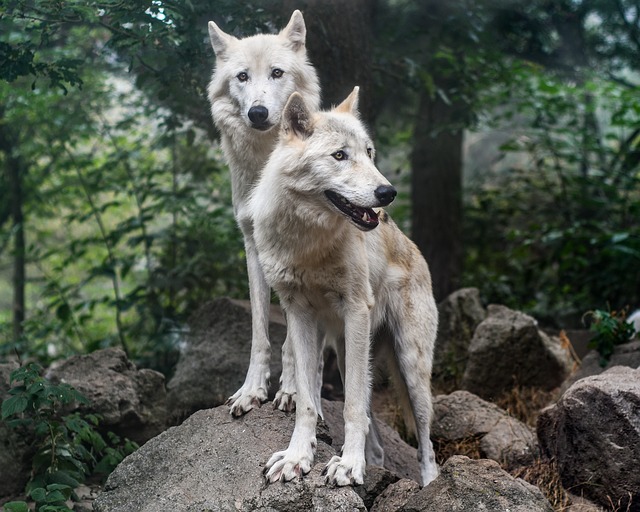As I sat watching a BBC Children in Need documentary on kids’ mental health, I felt quite emotional when the story of The Two Wolves was told. The story of the Two Wolves is a popular legend, sometimes attributed to the Cherokee people. It goes like this:

One evening an old Cherokee told his grandson about a battle that goes on inside people.
He said, “My son, the battle is between two wolves inside us all“
“It is a terrible fight and it is between two wolves. One is evil – he is anger, envy, sorrow, regret, greed, arrogance, self-pity, guilt, resentment, inferiority, lies, false pride, superiority, and ego.” He continued, “The other is good – he is joy, peace, love, hope, serenity, humility, kindness, benevolence, empathy, generosity, truth, compassion, and faith. The same fight is going on inside you – and inside every other person, too.”
The grandson thought about it for a minute and then asked his grandfather, “Which wolf will win?“
The old Cherokee simply replied, “The one you feed“.
That story caused me to reflect on my own long-term faltering mental health and how I have struggled with the two monkeys who sit on my shoulders. Each monkey will be pitching in my ear with opposite opinions about how I should feel in any given situation, just like the inner wolves. Sound familiar? Too often we listen to the most dominant voice in our head (wolf or monkey), the one which is full of negativity. Why does it win? Probably because to fight it would take too much effort and we are already feeling in a negative head-space.
My friends have been a massive support to me throughout my struggles including a period of what I think would now be diagnosed as post-natal depression. We all had our ups and downs and would lean on each other for much needed support or understanding. We all knew that the solution would be a personal one but sharing how we felt was helpful. We used to text each other about the game snakes and ladders to again try and picture how we were feeling. We knew that a snake meant that we were having a down day and that we needed to work harder to explore how to get back up that ladder.
Eventually I found I was able to referee between the dualling monkeys. There was no silver bullet for me in achieving that but sharing my feelings, when appropriate, with my friends, family and colleagues at work really did help. I was not looking for excuses, I was actively asking them to give me feedback on how I was coming across. My daughters got good at telling me when I was behaving like a victim and whilst that may sound harsh, their feedback was given in a safe environment and they knew I was ok with it. As a side note, behaving as a victim in any situation is feeding the bad wolf/monkey because in doing so you are placing blame or responsibility on external forces; you’re giving other people or things the power to determine how you feel.
Another action I took was to read as much as I could about mental health in order to better understand what was going on in my head. I read the Chimp Paradox (Prof Steve Peters) during a relaxing holiday in Cyprus and that helped me to further understand how the brain processes information. I volunteered at work to become a mental health champion and received training to help me to help others. I went on to become a mental health trainer. I also read books on how to sleep well and from all of those sources built my capability to manage me.
I became able to do deep self-reflection on why I was feeling the way I did and to really isolate the feelings of negativity generated by the negative monkey. I can tune in to my positive monkey with simple actions like breathing well, moderate exercise, (a walk outdoors with my dog or gardening) and reflecting on the good things in my life. Does my negative monkey stay put? Nope 😊 and from time to time it will jump out and I’ll have a low day. My problem is that my positive monkey is quite lazy and doesn’t jump out of the box too often without me encouraging it out. The key is to find those things that encourage it to come out.
If any of this resonates with you I’d love to hear from you, perhaps you have a dominant monkey or have some suggestions for energising the lazy monkey?

Acceptance that everyone of us faces these challenges is step one on the path to contentment. Recognising, then being ok with our emotions and mental state is so important in feeding that positive, optimistic wolf. Your warmth, candor and accepting approach to this topic has started many life-changing conversations over the years.